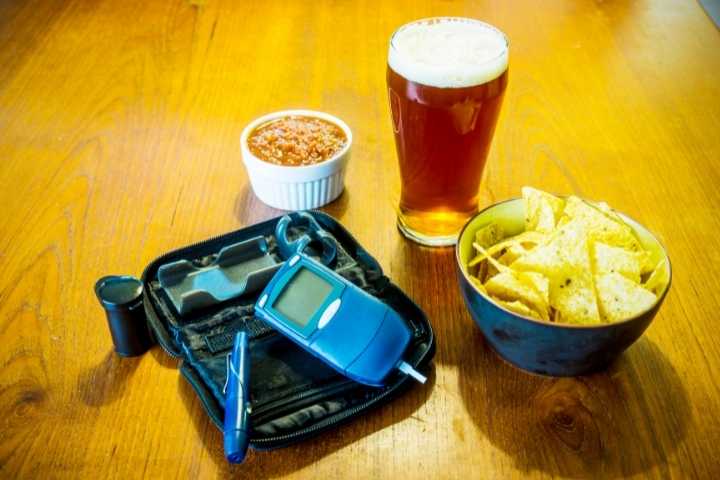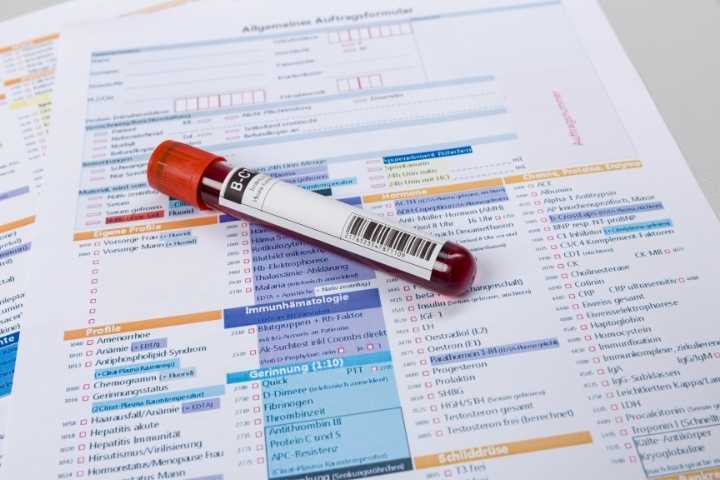Blood alcohol content determines how intoxicated you are and whether you are fit to drive or not.
The blood alcohol calculator below will help you estimate the alcohol content in your blood. Please use it as an estimate only.
Everyone’s body metabolizes alcohol differently. Please do not use this blood alcohol calculator to determine your fitness to drive or work.
Share this article to save lives!
How Does Blood Alcohol Content Impact Behaviour?
The following table describes an individual’s behavioral changes as per their BAC percentage.
| BAC Percentage | Behavior | Impairment |
| 0.001-0.029 | An average person appears normal | Subtle effects can be detected with tests |
| 0.030-0.059 | More talkative, relaxed, mild euphoria | Poor concentration |
| 0.060-0.099 | Euphoria, reduced sensitivity to pain | Reasoning, peripheral vision, glare recovery |
| 0.1-0.199 | Overexpression, the possibility of nausea and vomiting | Staggering, slurred speech, temporary erectile dysfunction |
| 0.2-0.299 | Nausea, vomiting, decreased libido, partial loss, anger, sadness, nausea, vomiting | Loss of consciousness or there may be a complete loss of memory |
| 0.3-0.399 | Loss of understanding, low possibility of death. | Bladder function, breathing, heart rate. |
| 0.4-0.5 | Coma, the possibility of death | Breathing, heart rate |
| Greater than 0.5 | High chances of death (alcohol poisoning) |
The blood alcohol calculator helps estimate the BAC at any given time in an individual. The calculator considers several variables like gender, weight, time since first drink, and the amount of alcohol consumed by the individual. You have to enter these variables to know the amount of alcohol in a specific volume of your blood.
Note: the information provided by the blood alcohol calculator is just an estimate, and it may not be 100 percent accurate. So you shouldn’t decide to drive in public spaces after drinking just because you are seeing an acceptable value obtained on the virtual calculator.
If you are unsure about your level of intoxication, it is always better to hire a cab and reach home safely.
This article outlines the effect of blood alcohol content on the health and behavior of an individual. So, you can continue reading the article for more valuable information.
What Is Blood Alcohol Content?

Blood Alcohol Content is the amount of alcohol (in mg) in 100 ml of blood. For instance, if a person has a BAC of 0.08 percent, that means there are 0.08 grams of alcohol in 100ml of that person’s blood.
What Is Blood Alcohol Content (BAC) Limit?
The BAC limit helps to determine the maximum amount of alcohol that an individual can consume before it is illegal to drive on a public road in a country. In the United States, the legal limit of the BAC is 0.08 percent.
So if an individual above 21 years of age drives in a public place with a BAC above 0.08 percent, then it is illegal. They may have to face penalties for it. The penalties will vary from one state to state.
What Are The Various Factors Affecting Blood Alcohol Content?
#1. Amount Of Alcohol Consumed
Well, duh! If a person consumes more alcohol, then obviously, the BAC value will shoot up.
#2. The Rate of Alcohol Consumption
Interestingly, alcohol consumption itself is not the only thing that increases BAC. How quickly you are drinking impacts how well your body is able to absorb it, and therefore how high your BAC is going to be.
#3. Gender
For the same bodyweight, men’s bodies can metabolize alcohol faster than women’s. Researchers have proved that men have specific enzymes to break down alcohol molecules.
Again, men have more water content in their bodies than females, which means. We know that alcohol is a chemical that is highly soluble in water. Therefore men will have lower levels of intoxication than females provided both should drink the same amount of alcohol.
#4. Age
The digestive system gets weaker with age. Therefore, an older individual is more likely to have higher intoxication than a youngster.

#5. Body Type
The fatty tissues of your body do not absorb alcohol very well; instead, they will be absorbed by other tissues which contain more water.
For instance, if there are two persons who weigh 200 pounds each but one is tall and thin, and the other is shorter and plumper, and they consume the same amount of alcohol at the same time, then the shorter and heavier person will have a higher BAC.
#6. Metabolism Of The Body
The metabolism (the rate at which the body processes alcohol) differs from one person to another. For instance, a person with liver disease may find it more challenging to eliminate the alcohol than the one with an active liver.
#7. Food
If you drink alcohol on an empty stomach, your body will absorb more alcohol, and consequently, you will have more BAC.
Effect Of Alcohol On Health And Wellbeing
You may not feel the impact of alcohol on your body right away, but it starts from your very first sip. The consumption of alcohol has a strong impact on an individual’s health.
Many studies say that consuming red wine is good for health; it may reduce blood pressure and the risk of brain damage, and has various other benefits. However, some people benefit from taking alcohol daily, while others do not get those benefits at all.
The short-term effects of alcohol can lead to vomiting, diarrhea, dehydration, and various other problems, whereas over the long term, persistent drinking can permanently damage organs in your body.
I have outlined some of the effects of alcohol on the individual’s health below:
#1. Digestive And Endocrine Glands
Drinking too much alcohol can affect your pancreas badly. It may cause inflammation of the pancreas, resulting in a condition known as pancreatitis. Pancreatitis activates the release of pancreatic juice in your body, resulting in frequent abdominal pain.
#2. Liver Damage
Your liver is an essential organ of your body because it helps flush the toxins from your body. But regular intake of alcohol hinders the proper functioning of alcohol, and It may permanently damage your liver.
#3. Central Nervous System
Regular intake of alcohol can damage your central nervous system. You may experience numbness and tingling in both your hands and feet. It can also damage the frontal lobe of your brain, which is primarily responsible for impulse control and judgment.
#4. Digestive System
Regular intake of alcohol can damage the tissues of your digestive system, thus creating problems in digesting food. Heavy drinking can even lead to gas, bloating, constipation, ulcer, and painful stool.

#5. Circulatory System
Chronic drinking of alcohol develops the risk of heart diseases and difficulty pumping blood throughout the body.
#6. Sexual And Reproductive Health
Regular intake of alcohol can prevent the production of sex hormone and decreases your libido. Men may find difficulty in erection, while women may have problems menstruating each month.
#7. Skeletal And Muscle System
Long-term alcohol can lead to thin bones and increases the risk of fractures during falls. It weakens your muscles, and you may have frequent cramps.
Wrap Up
The blood alcohol calculator is meant only for educational purposes. The information generated from this calculator is not intended to replace a health care provider’s advice.
You must keep in mind that no blood alcohol calculator is 100 percent accurate because of the numerous factors related to alcohol consumption that affect different people differently.
I hope this article has given you helpful information, and please don’t forget to share the article with others who might be thinking of driving after a night of binge drinking! Let’s help save some lives!.
